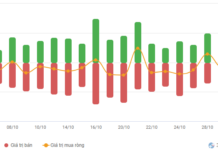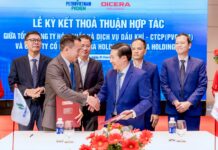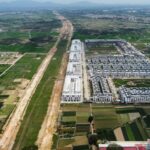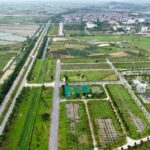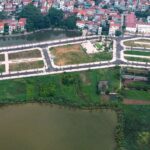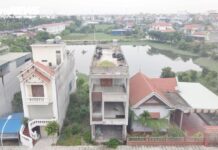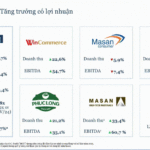On September 4, the Ministry of Agriculture and Environment (MAE) held a regular press conference chaired by Deputy Minister Phung Duc Tien.
One of the topics that sparked interest among journalists was the discussion surrounding land policies and the implementation of the amended Land Law.
At the press conference, Mai Van Phan, Deputy Director of the Land Management Department, shared that previously, under the Land Law, there were two types of land prices: specific land prices and reference land prices. These were applied in cases of land leasing or change of land use purpose. However, during the implementation process, certain obstacles arose, particularly for households and individuals wishing to change the purpose of their land use. The associated costs were often significantly high.
The government has tasked the Ministry of Finance with leading the development of a resolution to address these practical difficulties. They are exploring optimal solutions to reduce the financial burden on citizens when converting land for residential purposes. Within the recognized limit, no payment will be required; any excess will be calculated according to regulations. The Ministry of Finance is currently incorporating feedback to finalize this resolution.
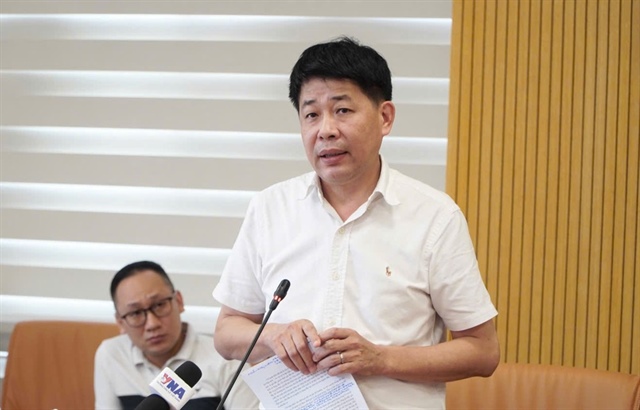
Mai Van Phan, Deputy Director of the Land Management Department, provides information at the press conference. Photo: Nguyen Hinh |
Earlier in August, the MAE dispatched 34 civil servants to local areas to support tasks related to land administration under the two-tier local government model.
According to Mai Van Phan, the MAE’s support teams have begun assessing the implementation process and have initially observed some notable outcomes. Reports highlight several noteworthy issues. One challenge is limited resources, especially after the administrative unit consolidation. Many communes have been assigned additional tasks, but the resources related to personnel, skills, and land management expertise remain scarce, while the workload continues to increase.
In some localities, the consolidation process has not been accompanied by the issuance of specific procedures, making it difficult to clearly define the responsibilities of each agency and sector in carrying out their duties.
Regarding digital transformation, some areas have not yet completed the construction of an interconnected land database with the public service system, hindering the implementation process.
Moreover, the MAE’s support teams not only focus on land-related matters but also comprehensively assess and support local agricultural development during their visits.
Recently, the media has reported instances of citizens facing high costs when converting land use purposes. For example, in Nghe An, a household in Hung Loc Ward (former Vinh City) had to pay nearly VND 4.5 billion in taxes when converting 300 square meters of garden land to residential land. This was due to the application of a residential land price of VND 15 million per square meter, compared to the agricultural land price of only VND 85,000 per square meter, as per the locality’s price list, resulting in a significant discrepancy and high land use cost.
In response to this situation, Prime Minister Pham Minh Chinh has instructed the Ministry of Finance to urgently propose land price adjustment coefficients to ensure appropriate collection levels and report by September 10, 2025.
XUAN NGUYEN
– 11:51 09/04/2025
The Land Law Draft Adds 3 Scenarios for State Land Retrieval
The proposed amendments to the Land Law aim to establish a clear mandate for the completion of a national land information system by 2026. This system is envisioned to serve as a cornerstone for integrating data on population, finance, and the real estate market, thereby enhancing transparency and modernizing land management processes.
Why Savvy Investors Continue to Pour Money into Danang Land
The Da Nang land market has witnessed a significant upward trend since the beginning of the year, with some areas experiencing a staggering 20-30% increase in land prices. This indicates a strong return of investment capital. Despite the surge, land prices remain only half of those of many apartment projects, and with superior liquidity, it has caught the special attention of investors.
“Debunking Rumors: Danang Authorities Refute Land Price Surge Claims”
The Danang Department of Natural Resources and Environment has clarified that land prices have not increased tenfold, but rather have been adjusted within the prescribed scope. They assert that the claims made by residents are inaccurate and that any changes are in line with the relevant regulations.


